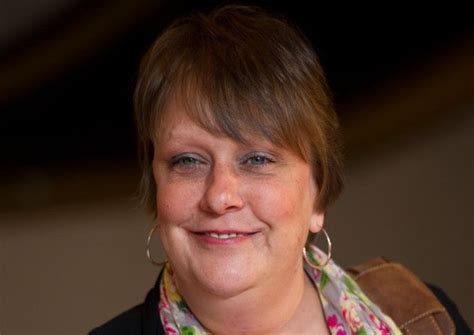A Quote by Steven Pressfield
When we make our art a practice, when we make our workspace sacred and enter it daily with respect and high intention, then we elevate our actions (even if they're taking place within the profane arena of commerce) beyond ego and above gimme-gimme ambition.
Related Quotes
If you say to the universe, "Gimme, gimme, gimme," which is what a lot of the work around the law of attraction says because of a misinterpretation, then the universe gives you back what you offered out. You get more "gimme, gimme, gimme." "Gimme" means you don't have enough. You have a shortage. The universe just keeps giving you more shortage because of what you're thinking and saying.
We only need so much to survive, but this world we live in tells us we need more stuff to be happy. We're inundated with our televisions, the Internet and advertising that says in order to be happy you have to have these things. When you say, 'Gimme, gimme, gimme,' you will always be in short supply.
The quality of everything we do: our physical actions, our verbal actions, and even our mental actions, depends on our motivation. That's why it's important for us to examine our motivation in our day to day life. If we cultivate respect for others and our motivation is sincere, if we develop a genuine concern for others’ well-being, then all our actions will be positive.
If your message to the universe is gimme, gimme, gimme, the universe's response back to that kind of mentality is exactly the same. The universe will say right back to you over and over again, gimme, gimme, gimme. If you shift that and you say to the universe, to the world, how may I serve? How may I serve? The universe's response back to you is how may I serve you? How may I serve you?
Life is sacred. Life is art. Life is sacred art. The art of sacred living means being a holy actor, acting from the soul rather than the ego. The soul is out of space and time and hence always available, an ever-present potential of our being. It is up to each of us to celebrate and to actualize our being and to turn each meal, conversation, outfit, letter, and so on, into art. Every mundane activity is an opportunity for full authentic self-expression. The soul is our artistic self, our capacity for transforming every dimension of our lives into art and theater.
Communications and commerce are global; investment is mobile; technology is almost magical; and ambition for a better life is now universal. We earn our livelihood in peaceful competition with people all across the earth. Profound and powerful forces are shaking and remaking our world, and the urgent question of our time is whether we can make change our friend and not our enemy.
One problem with our current society is that we have an attitude towards education as if it is there to simply make you more clever, make you more ingenious... Even though our society does not emphasize this, the most important use of knowledge and education is to help us understand the importance of engaging in more wholesome actions and bringing about discipline within our minds. The proper utilization of our intelligence and knowledge is to effect changes from within to develop a good heart.
Many of us incorrectly assume that a spiritual life begins when we change what we normally do in our daily life. We feel we must change our job, our living situation, our relationship, our address, our diet, or our clothes before we can truly begin a spiritual practice. And yet it is not the act but the awareness, the vitality, and the kindness we bring to our work that allows it to become sacred.
Regular maps have few surprises: their contour lines reveal where the Andes are, and are reasonably clear. More precious, though, are the unpublished maps we make ourselves, of our city, our place, our daily world, our life; those maps of our private world we use every day; here I was happy, in that place I left my coat behind after a party, that is where I met my love; I cried there once, I was heartsore; but felt better round the corner..., things of that sort, our personal memories, that make the private tapestry of our lives.
What brings the karmic result from the patterns of our actions is not our action alone. As we intend and then act, we create [our] karma: so another key to understanding the creation of karma is becoming aware of intention. The heart is our garden, and along with each action there is an intention that is planted like a seed. The result of the patterns of our karma is the fruit of these seeds.
How do we allow God into our minds, bodies, relationships, and life? We stop squeezing the divine out through our preconceived notions of what is sacred and what is profane. When we assume the mind-set that everything is ultimately divine, though sometimes more disguised than others, then we can see that all of our thoughts, impulses, and desires arise from and can bring us back to awareness of the sacred.































